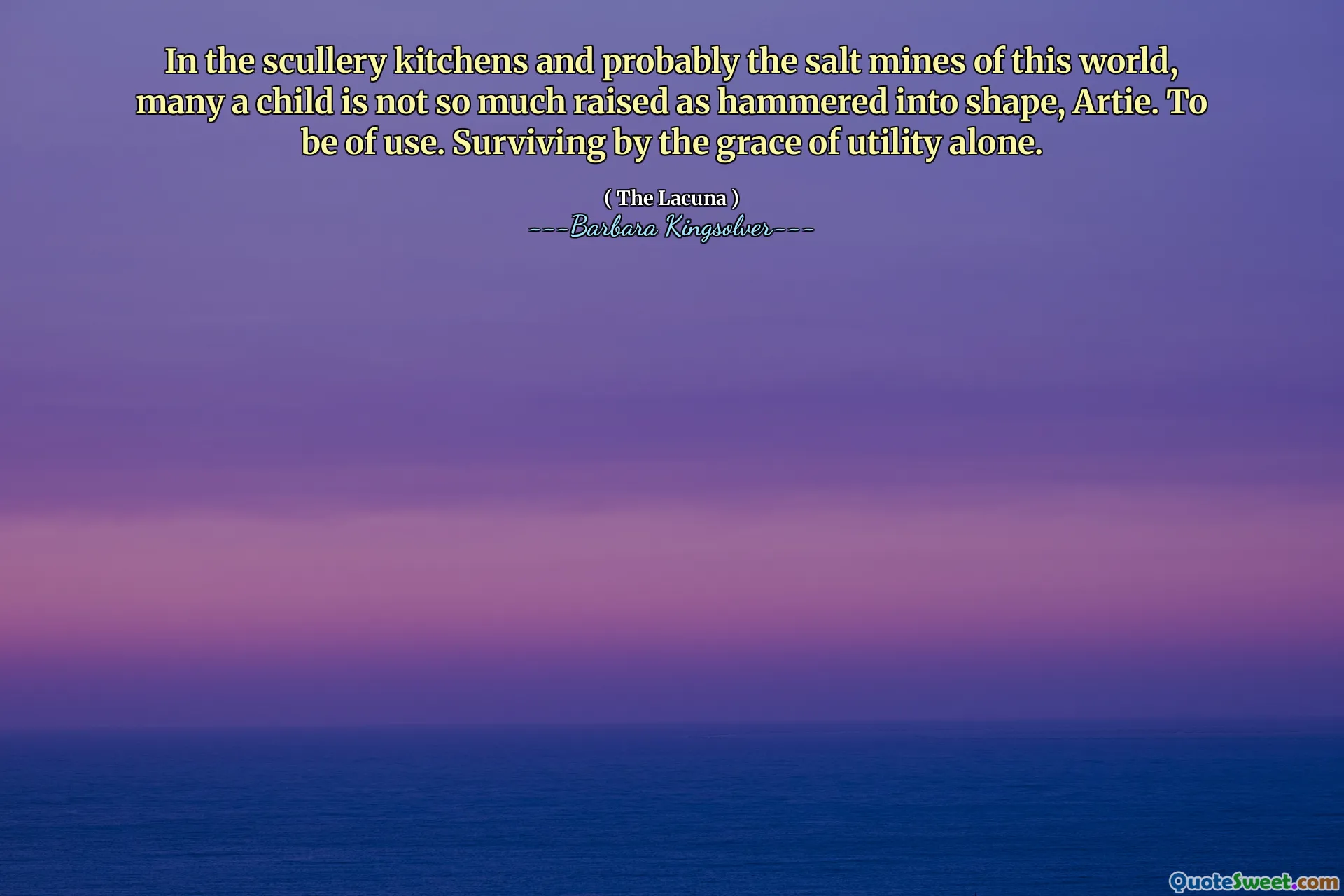
In the scullery kitchens and probably the salt mines of this world, many a child is not so much raised as hammered into shape, Artie. To be of use. Surviving by the grace of utility alone.
The quote from Barbara Kingsolver's "The Lacuna" highlights the harsh realities faced by many children who grow up in difficult environments. It suggests that instead of nurturing them, society often molds children through tough circumstances, like those found in scullery kitchens or salt mines. The implication is that these children are trained to be useful, emphasizing utility over personal growth or happiness.
This perspective raises important questions about the lack of care and compassion in certain upbringing situations. It critiques a system where survival is prioritized, sometimes at the cost of emotional and individual development. Ultimately, it captures the struggle of young people who learn to navigate life through the lens of practicality, rather than the richness of imaginative or fulfilling experiences.











